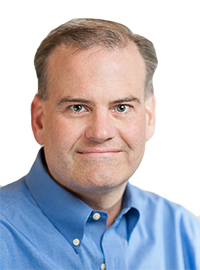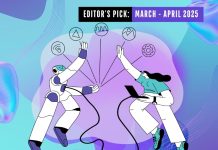Chris Surdak shares the lessons he has learnt from Dubai’s strategies to “Jerk” or disrupt the way that information is created, stored and utilised around the globe, and to do so in a way that simultaneously emphasises speed, openness, security and value.
 In my new book, Jerk: Twelve Steps to Rule the World, I discuss how companies such as Uber, Airbnb and Simple Bank are using new business models to disrupt existing industries. These new innovators cause disruption, or “Jerk”, by breaking with the traditional rules of capitalism and embracing Information as the new source of wealth and power in our world. Combining information with new consumption models such as sharing and bartering economies, Jerks create enormous value for end users by better utilising present investments and creating increasing information wealth along the way.
In my new book, Jerk: Twelve Steps to Rule the World, I discuss how companies such as Uber, Airbnb and Simple Bank are using new business models to disrupt existing industries. These new innovators cause disruption, or “Jerk”, by breaking with the traditional rules of capitalism and embracing Information as the new source of wealth and power in our world. Combining information with new consumption models such as sharing and bartering economies, Jerks create enormous value for end users by better utilising present investments and creating increasing information wealth along the way.
Recently, my team and I spent several days with a delegation from the Department of Economic Development of the Government of Dubai. This group, led by H.E Mohammed Shael Al Saadi, and Mr. Wael Osman, is tasked with driving Dubai to the forefront of the global information economy. Their mission was to visit with experts on Big Data, Security, Blockchain, Smart Cities and the Sharing Economy in several cities across the United States and explore the latest innovations in these areas. Through a comprehensive group of initiatives, Dubai is seeking to “Jerk” or disrupt the way that information is created, stored and utilised around the globe, and to do so in a way that simultaneously emphasises speed, openness, security and value.
Dubai’s goal is not to become merely a smart city, but rather to become the smartest city, and a model for all other cities around the world. This is an enormous undertaking that would take any organisation decades to implement. For a government to undertake this effort, with the goal of completing this transformation ahead of Dubai’s 2020 World Expo is truly monumental. But, as stated by Al Saadi, “We have a God-given ability to fix the challenges that present themselves. The key is to choose to change and then to do it. Only then can you find and fix the issues that arise.”
An Open Road to Success
The effort, driven by the Smart Dubai Office, began in March 2014 when His Highness Sheikh Mohammed Bin Rashid Al Maktoum, Vice President and Prime Minister of the UAE and Ruler of Dubai, launched the Smart Dubai Initiative within The Executive Office. A small initiative within a government office was then turned into the Smart Dubai Office, lead by Her Excellency Dr. Aisha Bin Bishr as Director General, with the governance structure and authority to unite public and private sector leaders to deliver an efficient, seamless, safe and impactful city experience for residents and visitors.
[ms-protect-content id=”9932″]
To achieve its strategic pillars, Smart Dubai has introduced strategic initiatives and developed partnerships to contribute to six key dimensions: Smart Economy, Smart Living, Smart Governance, Smart Environment, Smart People and Smart Mobility.
This effort is firmly rooted in the very latest in technology advancement. However, Smart Dubai is taking its city transformation mandate beyond technology and into measures of actual happiness. As discussed in “Jerk”, as part of the Six New Normals, the Smart Dubai leadership team is guided by the conviction that “technology is only a means to an end; our end goal is people’s happiness”. To fuel this city transformation to happiness, the Smart Dubai Office recently launched its Happiness Agenda, adopting a globally unique, science-based and methodical approach to impacting happiness for the whole city. Under the Happiness Agenda, Smart Dubai is introducing a framework to ensure that individuals’ happiness, satisfaction or well-being is factored into leadership’s decision making on important city projects.
One initiative within the Happiness Agenda is the so-called “Happiness Meter”, a customer satisfaction metric that was launched by Smart Dubai in October 2014, and is now in use by upwards of 40 government departments at service centres, websites and other “interaction touchpoints”. Results from the meters feed into the “Happiness Index”, a real-time happiness score for the city. City leadership and heads of government departments are able to call up the “Happiness Index” for the city, or their department, through a mobile app.
This May, the Happiness Meter was opened to the private sector as part of the city’s Open Data initiative. Emirates NBD, one of the largest banks in the city, has already adopted the system for its mobile banking services. Upgrades to the Happiness Meter functionality and analytical capabilities are currently underway, with new features scheduled to launch later this year. This is a prime example of how government Open Data initiatives can have a direct bearing on private enterprise, leading to entirely new solutions for residents and consumers.
“Do, Then Learn”
As discussed in “Jerk”, “Do Then Learn” is one of the principles followed by successful innovators. Dubai is actively embracing this approach, as demonstrated by their enactment of their new Dubai Data Law, late in 2015. This law required all government departments to open all of their data to each other and to the public. With the force of this decision by His Highness Sheikh Mohammed Bin Rashid Al Maktoum, Dubai has implemented its Open Data plan with a speed and certainty of purpose that is often elusive for government entities. As shared by Al Saadi, “We were certain of the need for smart, decisive action. Anything less would be unacceptable to us.” “We knew there would be challenges, but we could not know and address them until we actually began to implement.”
The Dubai Data Law called for the establishment of a governing body to oversee the implementation of the law. In accordance with the law, the Dubai Data Establishment was announced in early 2016, under the Smart Dubai Office. Data is the fuel of the city’s smart transformation, and the two organisations are closely aligned. Assistant Director General of the Smart Dubai Office, Younus Al Nasser, is also the CEO of the Dubai Data Establishment.
This is not the city’s first digital transformation. In 1999, His Highness Sheikh Mohammed launched Dubai e-Government, a new department charged with digitising all government operations. Setting the stage for Dubai’s current ambitions, Dubai e-Government was tasked by His Highness to “make Dubai a digital government in 18 months” – a remarkably short time table that was met.
The Dubai e-Government department continues to operate today, although it has evolved into the Smart Dubai Government Establishment. “SDG” operates within the Smart Dubai Office, under the leadership the CEO, Wesam Lootah. SDG is the “technology arm” of Smart Dubai, bringing more than a decade’s experience developing, implementing and enabling smart services for government departments. SDG recently published a report quantifying its impact on the government – over 1 billion USD saved over the past 13 years through the use of shared smart services and infrastructure.
SDG are the creators of DubaiNow, a mobile app which aggregates all government services into a single customer interface. Over twenty government departments are already participating in DubaiNow, in addition to several private sector companies, such as telco’s and health providers, and NGOs.
Smart Dubai Government is also the custodian of the Smart Dubai Platform, the “digital backbone” of the city. Unlike most other smart city platforms on the market today, Dubai’s platform was co-created by Dubai leadership and a local ICT provider to fit the exacting requirements of the Dubai’s smart city mandate. The Smart Dubai Platform will “orchestrate” Dubai’s data, and will become the public face of Open Data for the city. Current timelines suggest that the first open data sets will be available to access through the platform in early 2017.
By opening the city’s data for all to use, Dubai creates a tremendous engine of innovation. Before Open Data, it would be difficult for anyone to analyse how the city operated, where there were issues and how they could be improved. With Open Data anyone can look at the city’s vital signs, its rhythms and moods and look for new ways to improve all aspects of life in Dubai. Open Data allows anyone to participate in this process, creating an environment of competition and innovation unlike any before.
As radical as this change may have been to Dubai’s departments, it is just the beginning. Dubai’s leadership, including Abdulla Al Madani, chairman of the Dubai Open Data Committee, recognise that it is not enough to make the city’s data open. This data must be shared by both public and private organisations in order to produce valuable outcomes for the people of the city. Shared data is the real goal, allowing everyone to participate in the information economy. Creating an infrastructure, architecture and standards for such sharing are the key next steps to realising this vision.
Securing a Public Resource
Shared Data is a great step towards Dubai’s digital future. But even this is not enough. Shared data can be both a vulnerability and an asset, hence securing this data is imperative. Users must be certain of the validity and accuracy of the data that they intend to use. Hence, a state of the art security architecture is being implemented to protect this public asset.
As challenging as this may be, it is far easier to secure open, shared data than to secure how we operate today. As explained by Al Saadi, “With the old way of managing data, anyone in the government could be an inadvertent security leak. A photocopy of a license, application or photo could be left on a desk or thrown away, and a moment later be in the hands of someone wanting to use that information to do harm. With Open Data, attempts at falsifying or stealing data are known to all, and errors or breaches can be prevented from occurring. With Open Data securing people’s information is much easier, rather than harder.”
Open, Yet Private
This leads to the natural question of privacy. Will Open Data still protect the privacy of individuals? In today’s world of smartphones, apps and social media, the concept of privacy that has existed for the last half-century is largely gone. Being an invisible resident in a city of millions may have been a reality for many decades, but the Internet and the mobile revolution has brought such anonymity to an end. In this digital era we are returning to a time before the telephone or the computer or the car, where everyone knew each other and were neighbours. People still had their privacy, but much of their lives were spent as part of the community.
With Open and Shared Data we are reviving this sense of oneness and community, only now with millions or even billions of friends, family and neighbours. In this new world, the parts of our lives we wish to keep private will still be protected and respected, while the parts that we share will be used to benefit the whole community. The critical factor is choice, and the leadership of Dubai is ensuring that its people can choose what they wish to keep private, and what they choose to share. This will include anonymising data, selective participation or opting out where this choice is deemed most appropriate.
Much of this privacy framework will build upon Dubai’s privacy law enacted in 2007, and another update to this law is expected late in 2016.
Welcoming the World
As deployed, this combined solution will enable innovative business models such as resource sharing, capital, labour and expertise bartering, and talent arbitrage, all enabled through the effective use of data. As these capabilities are launched in Dubai it is hoped that the combined solution is so advanced and its utility so compelling that people worldwide will choose Dubai as the hub of all of their online activities. As Dubai has set itself as a global trade and travel hub, it will soon also be the centre of the world of online commerce and living.
Backwards Compatibility
Dubai’s vision is so advanced that it leads to a problem of a different sort; how can others keep up? Indeed the online community and marketplace envisioned by Dubai is so far in advance of what is currently available that many people around the world may find it difficult to bridge the gap. Again, Al Saadi and his team have anticipated this challenge, “We must anticipate the difficulties people from other cities may have in catching up to where we are heading. We must provide a sort of backwards compatibility, as you see with computer operating systems, so that people who want to join us are able to make the leap ahead without too much difficulty.”
This goes beyond defining technical gateways such as APIs or standards. It may include defining regulatory and legal frameworks that allow for the free flow of open data from and between societies that have not yet caught up to Dubai. Providing for these bridges now ensures that all cities may benefit from what Dubai learns as it moves forward with its vision, ensuring that it stays at the forefront of this new economy.
The Will to Change
Without doubt, the vision created by His Highness Sheikh Mohammed Bin Rashid Al Maktoum is a great leap forward. many others talk of bold steps, but Dubai has the will to act. There is no illusion that this journey will be easy or that there will not be challenges along the way. But, as I have discussed in my writing elsewhere if you are not challenged by the unexpected or unanticipated you are likely not really innovating at all. To reach a bold new future you must first decide to make the trip and then face each unexpected challenge with the best problem solving you can muster. This is the path towards new worlds, and by all appearances the people of Dubai may be there waiting for the rest of us once we arrive.
Featured image: GCC Government Social Media Summit 2015: The importance of using social media in government has shot to the top of agenda across the region following the Arab Social Media Influencers Awards presented by His Highness Sheikh Mohammed Bin Rashid Al Maktoum. © thinkmarketingmagazine.com
About the Author
 Christopher Surdak is an Engineer, Juris Doctor, Strategist, Tech Evangelist, 2015 Benjamin Franklin Innovator of the Year, and Honored Consultant to the FutureTrek Community, Beijing, China. He has recently launched his own consultancy firm Surdak & Company. His latest book is Jerk: Twelve Steps to Rule the World. He is also the author of Data Crush: How the Information Tidal Wave is Driving New Business Opportunities, which is GetAbstract’s International Book of the Year for 2014.
Christopher Surdak is an Engineer, Juris Doctor, Strategist, Tech Evangelist, 2015 Benjamin Franklin Innovator of the Year, and Honored Consultant to the FutureTrek Community, Beijing, China. He has recently launched his own consultancy firm Surdak & Company. His latest book is Jerk: Twelve Steps to Rule the World. He is also the author of Data Crush: How the Information Tidal Wave is Driving New Business Opportunities, which is GetAbstract’s International Book of the Year for 2014.



































